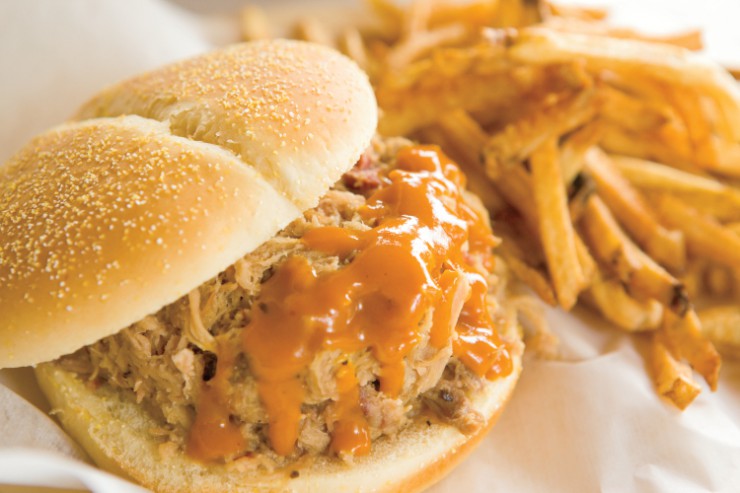Home > South Carolina > South Carolina Farm to Table > South Carolina Barbecue Competition Heats Up
South Carolina Barbecue Competition Heats Up

South Carolina has a reputation for mouthwatering barbecue. Over the last several years, that reputation and the number of competitions and competitors have grown. Most every weekend in the spring and fall, you can find barbecue enthusiasts firing up their smokers and grills, looking to stake their claim to the best-tasting barbecue.
But making those competitions happen requires some other barbecue lovers, too – experts who know how to evaluate what makes an entry award-winning. That’s where the Southern Barbecue Network comes in.
“Our emphasis is to train judges as a way to further the interests of the barbecue community in the Southeast,” says Jim Harmon, Southern Barbecue Network president. “When we got started in 2010, it was because there was a growing number of contests, and other sanctioning groups were reaching their limits.”
Harmon explains that sanctioning is important because cooks know there is a reputable organization that will judge them fairly and accurately and where winning will actually mean something. The sanctioning brings more teams to the contest, which, in turn, benefits the local communities that host these events.
For cooks like Chris Fulmer of Ultimate Tailgaters, being named winner of the Commissioner’s Cup BBQ Cook Off Championship is a thrill. It’s also an important stepping stone to more advanced competitions. He and his wife Kathy parlayed their 2012 win into a 12th-place finish at the World Barbecue Championships in Las Vegas last year.
Matt Gamble and Russ Cornette of Queology Charleston BBQ, won the Commissioner’s Cup in 2013 and have had similar wins in competitions over the past decade. Their success earned them one of only eight invitations to the exclusive 2013 Kingsford Invitational in New York.
For Queology, the Ultimate Tailgaters and the 250 volunteer judges trained through Southern Barbecue Network , barbecue competitions are a passion that allows them to be creative while supporting community efforts.
“Some guys hunt or fish; we cook barbecue,” Cornette says. “We have a good time meeting people and traveling all over the country.”
Fulmer agrees. “It’s a circuit where you meet lots of great people, where people pull for each other and where you can take a lot of pride in what you do,” he says



